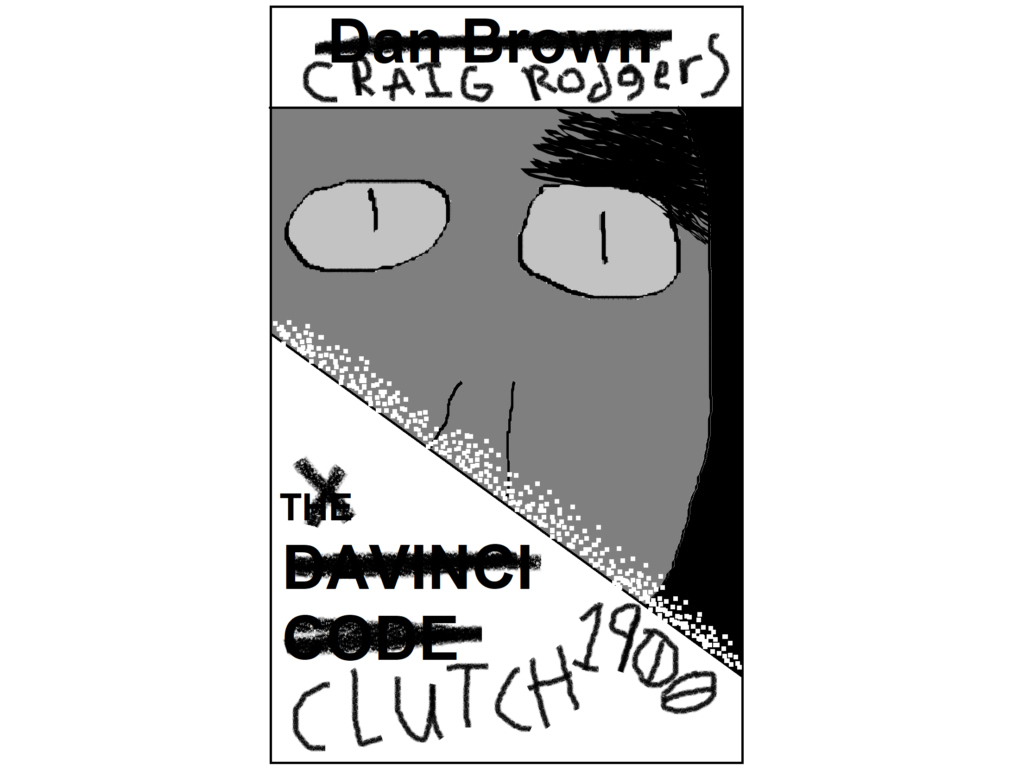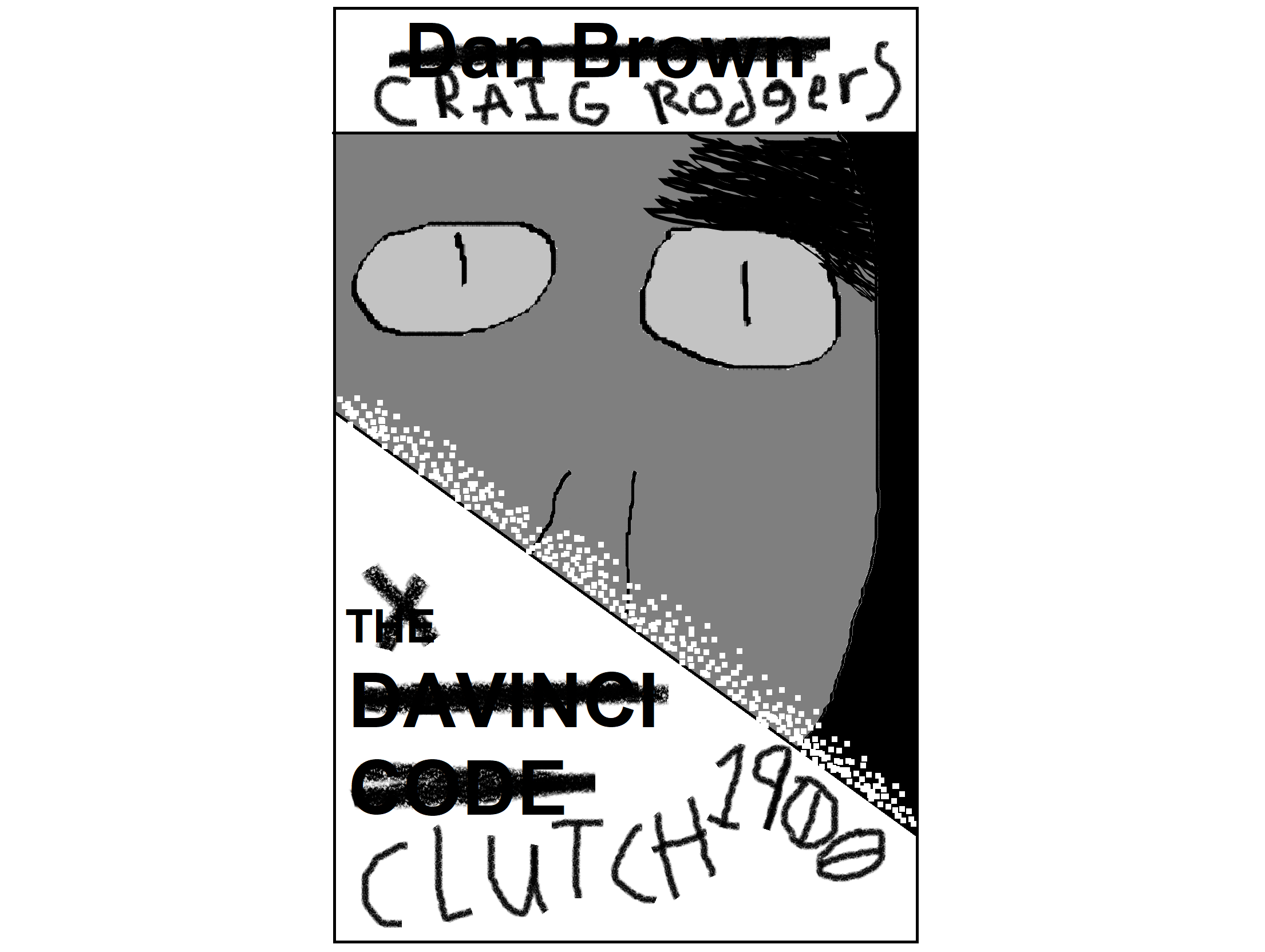
Craig Rodgers Interview
The following is an interview with writer Craig Rodgers. The questions asked are apparently taken piecemeal or at times whole cloth by interviewer Frank Peak from a 2003 Q&A with Da Vinci Code author Dan Brown.
How would you describe Clutch 1900 to someone who has not read any of your previous novels?
Two stories take place in successive chapters. One follows a collector of old western dime novels. The other is about an old man waiting in a hotel for his biographer to come and collect his life story at the turn of the twentieth century. The latter may or may not be the reality of the kitsch laid down in the former.
Will your next book also feature dime novels?
Pulp is fun. In theme and style, it’s enjoyable to play with. I’m not really writing dime novels, but it’s an inspiration. That toolkit does get pulled out or referenced a lot.
Do you expect to explore other numerological cults — such as the Pythagoreans, or perhaps the Kabbalists — in future books?
No?
Which part of researching Clutch 1900 was the most personally interesting to you? Were there any facts, symbols, or themes that you would have liked to include, but they just didn’t make into the story?
There’s more with the maze that I had to cut. And there’s a subplot with an antique gun that was featured in both stories but it just didn’t work, it was too off point.
If readers would like to read up on the history of the Freemasons, are there any books you would recommend?
Surely, but what does this have to do with me or my book?
What are you reading right now? Are there any authors (living or dead) that you would name as influences?
I’m reading Ripley Under Water, the last of Patricia Highsmith’s books about Tom Ripley. You’d think somebody by now would’ve revived the character with a nod from her estate. Not that I’m taking a position on whether that’s a good or bad idea, but it happens with everything else.
If you had a book club, what would it be reading — and why?
The House on the Borderland, by William Hope Hodgson. It’s a fun one, I recommend it all the time. It starts out as the journal found in ruins type story, then goes bonkers. Pig monsters attack, time and space lose their footing, worlds crumble, stars fall. It’s a big time. He died in World War 1.
Give us three “Good to Know” facts about you.
(1) It might read as just OCD, but I encountered real magic once. I was out with friends, I bought something in the store and my change was two quarters, a 1965 and a bicentennial. I used this in a gumball machine right after. Later that day I bought food and my change was two quarters. A 1965 and a bicentennial. The odds of this, I can’t even guess. It happened again years later. For a long time I saved every quarter of those two dates that I ran across, put them in the console, then somebody borrowed my car and spent every one. After that my house burned down.
(2) Two more things? I haven’t had a haircut by anyone but me since I was in my teens.
(3) I was born with an extra finger but they cut it off at birth.
What else do you want your readers to know?
There’s another book out later in the year, Francis Top’s Lost Cipher. That’s coming from Death of Print, the loopy offshoot imprint of Malarkey Books. And if you have a cousin who produces TV, hit me up, let’s get somebody to adapt these stories for screen so I can afford a moat.
Clutch 1900 is coming 28 May from publisher Apocalypse Confidential. Frank Peak is an author and reprobate. His novella collection The Book Of is published by Apocalypse Confidential.
